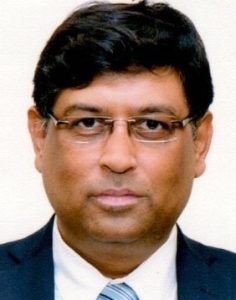
In the world of hospitality, education is more than classroom learning; it’s the foundation that prepares students to meet the demands of a fast-paced, customer-focused industry. And as the industry grows, so do the expectations of those at the forefront of hiring—hotel recruiters. At the core of this evolution are the Institutes of Hotel Management (IHMs) in India, renowned for supplying talent to top hotels. But, to meet the new demands of the industry, IHMs must stay relevant and strategic in their approach to education.

Why Recruiters Are Key to Hospitality Education
Picture this: a hotel recruiter walks into a campus, looking for the next generation of hospitality talent. They’re on the hunt for candidates who not only know their way around a hotel but also have the leadership, adaptability, and interpersonal skills to deliver exceptional guest experiences. In many ways, recruiters are the bridge between education and the industry, selecting those who will shape the future of hospitality. And as expectations grow, recruiters are no longer satisfied with graduates who only meet the basics—they’re looking for standouts who bring fresh perspectives and skills.
For IHMs, understanding these evolving expectations is vital. By aligning their offerings with industry demands, IHMs can strengthen their reputation, making themselves the preferred recruitment ground for top hotel brands. Recruiters notice everything: from the curriculum to the facilities to how well-prepared the students are. They’re not just evaluating students—they’re assessing the entire educational experience and deciding if it’s worth returning to the campus next year.
Service Quality, Satisfaction, and Service Value: What Recruiters Look For
At its core, hospitality education is about service. IHMs strives to deliver “service quality” through high-calibre teaching, modern infrastructure, and a curriculum designed to equip students with industry-relevant skills. But it’s not just about quality alone—satisfaction and perceived value play equally significant roles in whether recruiters see IHMs as ideal hiring grounds.
Satisfaction isn’t just based on the skills of the students. Recruiters value a seamless and supportive campus experience. From clear communication to well-organized interview processes, IHMs have numerous ways to ensure that recruiters have a positive experience, directly impacting their decision to return. And when it comes to service value, recruiters want to know they’re getting the best return on their investment in time, effort, and resources. Given the high demands on their schedules, a smooth, efficient recruitment process and a strong talent pool from IHMs can make all the difference.
To gain deeper insights into the behavioural intentions of recruiters toward IHMs, a comprehensive study was conducted involving representatives from over 100 leading hotel brands located in Tier-1 cities across the country. The participants included General Managers, Department Heads, and Learning and Development Managers from these prestigious hotels. Interestingly, our study found that satisfaction was the strongest predictor of recruiters’ likelihood to return. They’re looking for an experience that’s easy, positive, and filled with potential hires who meet their high standards. For IHMs, this underscores the importance of not just preparing students for interviews but also refining every aspect of the campus recruitment experience.
How IHMs Can Step Up to Meet Recruiter Expectations
So how can IHMs keep recruiters coming back year after year? The answer lies in strategic improvements that directly address recruiters’ priorities. For instance, our study highlighted that the recruiters value competencies such as ethical behaviour, critical thinking, and the willingness to take calculated risks—qualities that don’t always come from textbooks. IHMs can help students build these competencies by incorporating real-world scenarios, role-playing exercises, and industry mentorships into their programs. Additionally, it was revealed that adopting cutting-edge technologies such as AI, machine learning, deep learning, blockchain, and digital marketing can transform how students are trained. By embedding these 21st-century skills into their programs, IHMs can prepare graduates to navigate the evolving demands of the hospitality industry, making them not just employable but indispensable in a tech-driven world. Further, the“attitude” dimension of service quality, which emphasizes attributes like resilience and ethical decision-making, was critical to recruiters and contributed to positive perceptions of IHM graduates.
An intriguing finding from the survey reveals a surprising yet positive connection between recruiters’ perceptions of sacrifice—such as offering competitive salary packages, investing effort, and dedicating time to train recruits—and the value they associate with these hires contributing to their brand. Simply put, hotel brands take pride in having IHM graduates on their teams and actively strive to onboard the best talent from these institutes. Now, this creates an exciting opportunity for IHMs to foster a dynamic and competitive recruitment environment. By strategically inviting multiple hotel brands to participate in campus placements, IHMs can ignite healthy competition among recruiters, leading to better student salary packages and heightened visibility for their talent pool. This competition not only benefits students but also reinforces the institute’s reputation as a premier source of hospitality talent.
Connecting with National Goals: NEP 2020 and Hospitality Education
Aligning with India’s National Education Policy (NEP) 2020, IHMs can play a major role in producing graduates who are not only technically skilled but also ready to make a positive impact on the hospitality landscape. The NEP emphasizes employability and quality education, both of which are directly connected to how well IHMs meet recruiters’ expectations. By focusing on practical skill-building and staying tuned to industry needs, IHMs can reinforce their relevance, helping India meet its goal of producing highly skilled professionals by 2030.
Conclusion: Building a Sustainable Path Forward
As hospitality education and industry demands evolve, IHMs have a unique opportunity to stay at the cutting edge. By prioritizing service quality, ensuring recruiter satisfaction, and maximizing service value, these institutions can strengthen their reputation as leading talent providers in hospitality by attracting the budding hospitality professionals. Building a strong partnership with hotel recruiters is not just about meeting immediate hiring needs but about fostering a sustainable relationship that benefits both the education sector and the hospitality industry.
The future of hospitality education in India lies in understanding and acting on what recruiters value most. By focusing on these expectations, IHMs can help graduates excel, provide recruiters with top talent, and ultimately set new standards for hospitality education in India. With a strategy that aligns with quality, satisfaction, and value, IHMs are well-positioned to lead the next generation of hospitality professionals into the future.
In this endeavour, the Ministry of Tourism (MOT), has facilitated a much-needed breakthrough collaboration by signing a MOU between all Central IHMs and leading hotel brands across the country to mutually benefit from a strategic partnership for the overall improvement of hospitality education and the employability of students. This step will surely provide the impetus for IHMs to conduct workshops, short internships, faculty development programs and joint research with industry partners. For example, short, intensive internships provide students with hands-on experience, reducing the training burden on recruiters and giving graduates a head start in the industry. Partnerships with hotels to facilitate these internships can create a win-win situation: recruiters get access to better-prepared candidates, while students benefit from real-world learning. This collaboration also aligns perfectly with the industry’s need for job-ready graduates, further strengthening IHMs’ value proposition.
Further significant steps have been taken by the National Council for Hotel Management and Catering Technology (NCHMCT) and the MOT to bridge the gap between industry expectations and academic delivery at IHMs. The curriculum has undergone a comprehensive revision, incorporating cutting-edge topics such as AI in hospitality, digital marketing, cultural diversity and sustainable tourism, etc, ensuring that students are equipped with modern skills. A landmark collaboration with Michigan State University, USAhas opened new avenues for academic research, faculty development, and student exchange programs, bringing global perspectives to Indian hospitality education. Additionally, the Marriott International Internship Program now offers IHM students hands-on training opportunities in Marriott hotels in Mauritius, providing invaluable international exposure. These initiatives, both implemented and, in the pipeline, demonstrate a strong commitment to aligning IHM education with global industry standards, preparing graduates to excel in the rapidly evolving hospitality landscape.
India has always been known for its rich cultural heritage, warm hospitality, and diversity, making it the perfect place to nurture world-class hospitality professionals. IHMs across the country has a huge opportunity to be at the forefront of this effort, providing students with top-quality education and hands-on training. As the global hospitality industry recovers rapidly post-COVID, the demand for skilled professionals is higher than ever. By incorporating the initiatives of MOT and NCHMCT along with modern technology, sustainable practices, and a global outlook into their curriculum, IHMs are on course in preparing graduates who are ready to excel in a competitive, interconnected world. With their ability to combine professionalism with India’s signature warmth, IHM graduates can meet the growing global demand, positioning India as a leader in hospitality talent and meeting the overall vision of transforming our country into a Viksit Bharat 2047.
(Ref: Ghosh, P., Jhamb, D., & Yu, L. (2023). Measuring service quality perceptions of hotel management institutes on hotel recruiters’ hiring intentions: effect of sacrifice, satisfaction and service value. Journal of Teaching in Travel & Tourism, 23(4), 469–493. https://doi.org/10.1080/15313220.2023.2222076 )


